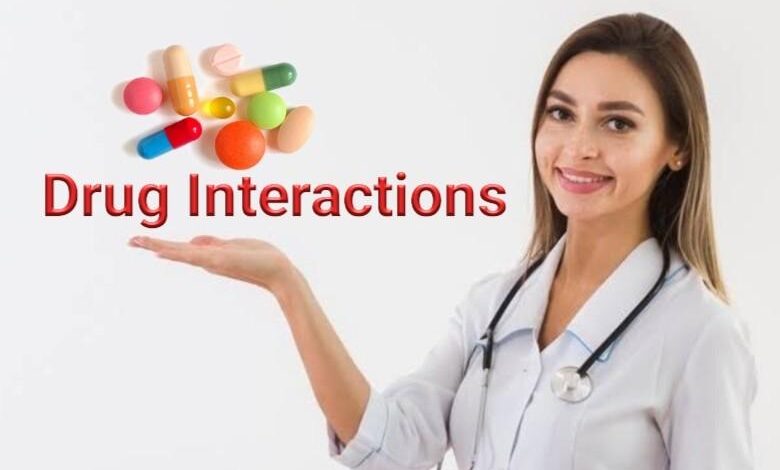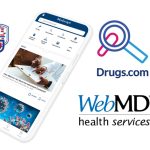What Drug Interaction Means & 10 Ways To Prevent Them

What is a drug interaction?
Drug interaction refers to the effects that occur when two or more drugs are taken together. These effects may be beneficial or harmful and may vary depending on the drugs involved, the doses used, and the individual taking them. Understanding drug interactions is crucial for healthcare providers, as they need to ensure that their patients are not exposed to potentially harmful side effects or reduced drug efficacy.
Drug interactions can occur at different stages of drug metabolism, including absorption, distribution, metabolism, and excretion. For example, when two drugs are taken together, one drug may affect the absorption of the other drug in the gastrointestinal tract, reducing its effectiveness. Alternatively, one drug may affect the metabolism of the other drug in the liver, resulting in increased or decreased drug levels in the body.
Available data points to the following :
- Prevalence: According to a study published in the Journal of the American Medical Association (JAMA), over 40% of patients taking five or more medications experience a drug interaction.
- Hospital Admissions: Another study published in the Annals of Pharmacotherapy found that drug interactions are responsible for up to 30% of hospital admissions.
- Adverse Drug Reactions: Drug interactions are also a leading cause of adverse drug reactions (ADRs), which are responsible for over 100,000 deaths per year in the United States alone.
- Polypharmacy: Polypharmacy, or the use of multiple medications, is a major risk factor for drug interactions. The number of medications a patient takes is strongly associated with the risk of a drug interaction
Types of Drug Interactions
There are different types of drug interactions, including pharmacodynamic and pharmacokinetic interactions. Pharmacodynamic interactions occur when two drugs interact at the same receptor site, resulting in additive or antagonistic effects. For example, the combined use of opioids and benzodiazepines can result in respiratory depression due to their additive effects on the central nervous system.
Pharmacokinetic interactions, on the other hand, occur when one drug affects the absorption, distribution, metabolism, or excretion of another drug. For example, the use of certain antibiotics can reduce the effectiveness of oral contraceptives by reducing their absorption in the gastrointestinal tract.
Drug interactions can also be classified based on the severity of their effects. Some drug interactions are minor and may result in mild side effects, such as dizziness, nausea, or headache. However, other drug interactions can be severe and life-threatening, resulting in cardiac arrhythmias, seizures, or coma.
There are several factors that can increase the risk of drug interactions, including age, genetics, liver and kidney function, and the presence of underlying medical conditions. For example, elderly patients may be more susceptible to drug interactions due to changes in their metabolism and decreased kidney function. Patients with liver or kidney disease may also be at increased risk of drug interactions, as their bodies may not be able to process drugs as efficiently.
Healthcare providers can reduce the risk of drug interactions by carefully reviewing a patient’s medication history and ensuring that they are not taking drugs that may interact with each other. They can also monitor patients for potential drug interactions and adjust dosages or switch to alternative drugs as needed.
Patients can also play a role in reducing the risk of drug interactions by informing their healthcare providers of all the medications, supplements, and herbal products they are taking. Patients should also follow their healthcare provider’s instructions carefully and avoid taking drugs that are not prescribed to them.
10 Ways To Prevent Drug Interactions
Preventing drug interactions is essential for ensuring patient safety and optimal health outcomes. In this article, we will discuss in detail how to prevent drug interactions.
1. Consult with your healthcare provider
The first step in preventing drug interactions is to consult with your healthcare provider. Your healthcare provider will review your medical history, current medications, and any allergies you may have. They will also take into account your age, weight, and other factors that may affect the way your body metabolizes medications. By understanding your unique health profile, your healthcare provider can help you make informed decisions about which medications to take and how to take them.
2. Keep an updated list of medications
It is important to keep an updated list of all medications you are taking, including prescription medications, over-the-counter medications, vitamins, supplements, and herbal remedies. This list should include the name of the medication, the dose, the frequency of use, and the reason for taking the medication. You should also note any allergies or adverse reactions you have had to medications in the past.
3. Inform your healthcare provider of any changes to your medications
If you are prescribed a new medication or change the dose of an existing medication, it is important to inform your healthcare provider. They can review your medication list and assess the potential for drug interactions. They may need to adjust the dose of one or more medications to prevent adverse effects.
4. Read medication labels and instructions
It is important to read the labels and instructions for all medications you take, including over-the-counter medications and herbal remedies. The label will provide important information about the dosage, frequency of use, and any potential side effects. Be sure to follow the instructions carefully and do not exceed the recommended dosage.
5. Avoid alcohol and grapefruit juice
Alcohol and grapefruit juice can interact with certain medications and increase the risk of side effects. It is important to avoid consuming alcohol or grapefruit juice while taking certain medications, such as statins, antidepressants, and blood thinners.
6. Be aware of food interactions
Some medications should be taken with food, while others should be taken on an empty stomach. Certain foods can also interact with medications and affect their absorption or metabolism. For example, high-fat meals can reduce the absorption of certain antibiotics. It is important to follow the instructions for each medication and avoid foods that may interact with your medications.
7. Ask your healthcare provider about alternative treatments
In some cases, alternative treatments may be available that do not interact with your current medications. For example, if you are taking a medication for high blood pressure that interacts with your current antidepressant, your healthcare provider may suggest an alternative antidepressant that does not interact with your blood pressure medication.
8. Use one pharmacy
Using one pharmacy for all of your medications can help prevent drug interactions. The pharmacist can review your medication list and assess the potential for drug interactions. They can also check for duplicate therapies and provide advice on how to take medications safely.
9. Be aware of drug-drug interactions
Some medications can interact with each other and increase the risk of side effects. For example, taking two medications that lower blood pressure can cause hypotension, which can be dangerous. Your healthcare provider can review your medication list and assess the potential for drug-drug interactions.
10. Be aware of drug-disease interactions
Some medications can interact with certain medical conditions and increase the risk of side effects. For example, taking certain medications for diabetes can increase the risk of hypoglycemia in patients with kidney disease. Your healthcare provider can review your medical history and assess the potential for drug-disease interactions
For More Information: Read Difference Between Side Effects, Adverse Effects & Contraindications





